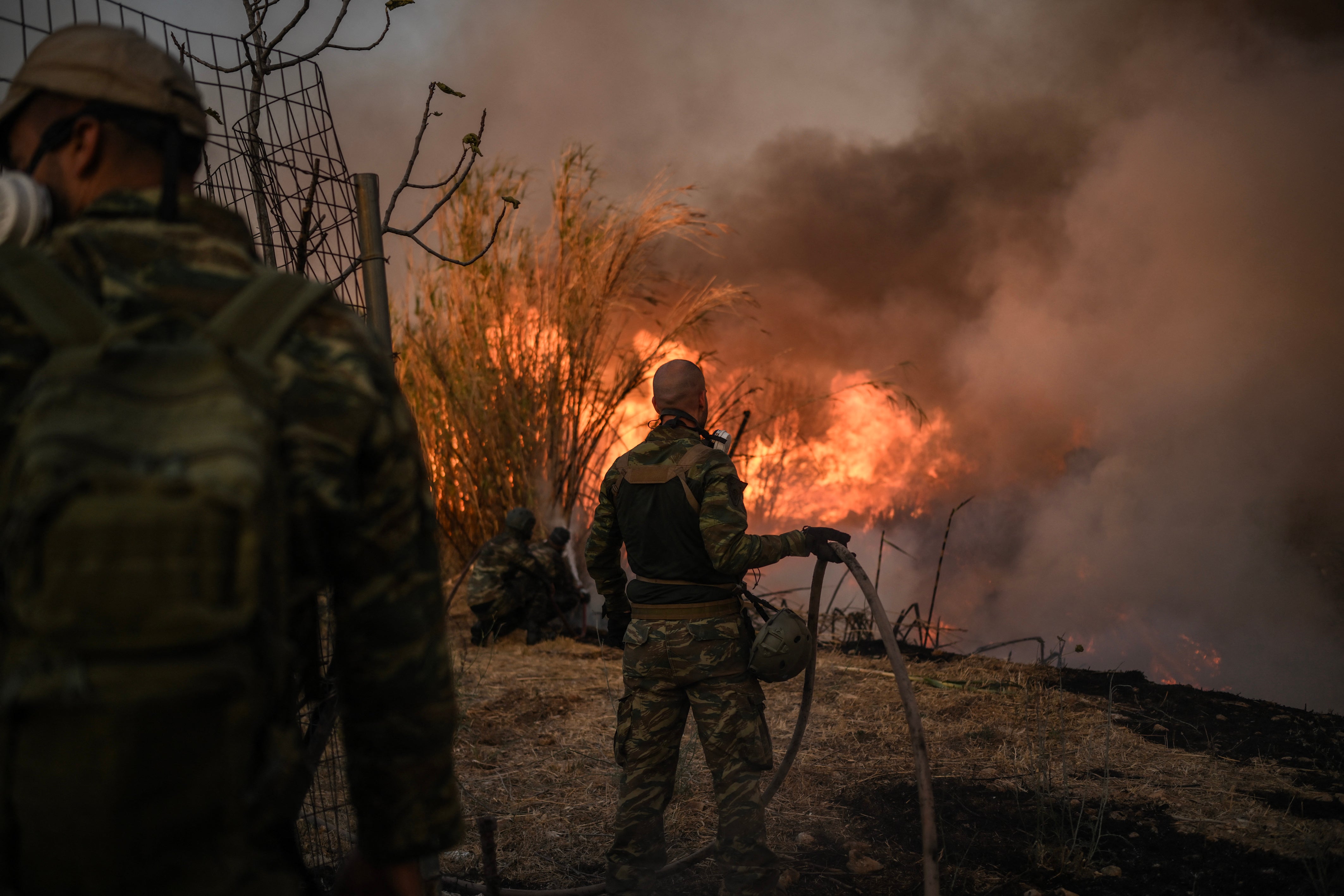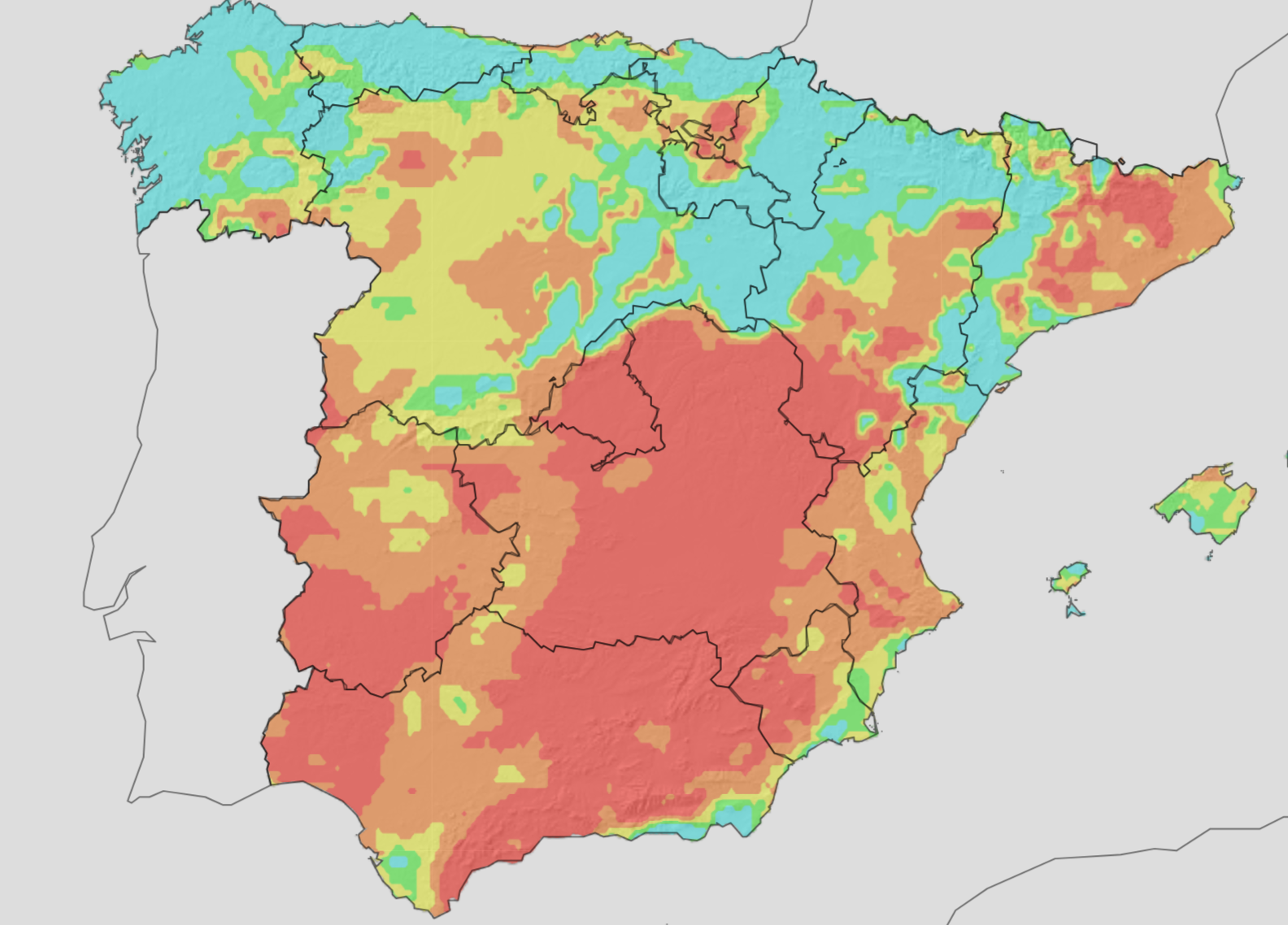Extreme heat in high summer is once again causing disruption for many travellers to southern Europe, following events last summer such as the mass evacuation of 20,000 holidaymakers from the Greek island of Rhodes due to wildfires.
Earlier this year many British tourists in Kos were moved from their hotels as a precaution as wildfires flared. Now firefighters are tackling blazes immediately outside Athens.
The European Union Civil Protection and Humanitarian Aid unit says: “2023 was a record-breaking year, with the largest fire ever in Europe, one of the worst wildfire seasons on record in the EU.

“The fire risk is expected to further increase due to climate change. The season will be increasingly characterised by massive fires that cost lives and burn areas that take longer to fully recover.
“The wildfire risk expanded to areas that have not previously been exposed, moving well beyond the Mediterranean region.”
Across Europe, firefighters are facing a wide range of emergencies.
Greece
The General Secretariat for Civil Protection in Greece has announced “Very High Fire Risk” and “Extreme Fire Risk”for many areas in Greece, including areas close to Athens.
Flights are continuing normally for now at Athens airport: smoke can be seen from planes taking off. Jet2 is telling passengers: “As it currently stands, Athens airport is still open and we are planning to operate our flights as planned.

“Please allow extra time for you journey to the airport, as there may be road closures in place.”
The Australian ambassador to Greece, Alison Duncan, posted on X: “Dangerous conditions are forecast to continue. Avoid affected areas. Stay indoors with windows shut if there is smoke in your area.”
Spain
Aemet, the Spanish Met Office, is currently running a map showing an “extreme risk” of fire across much of Spain, from the northeast Pyrenees and the Basque region to most of the southern half of the country.
Mallorca: A drought is afflicting the most popular Spanish island for British holidaymakers. Through the summer, individual villages have been rationing water – typically by turning off the water supply for 12 hours at a time.
The latest, according to the Majorca Daily Bulletin, is Puigpunyent – northwest of the capital, Palma.
Mainland Spain: the province of Castellon – on the Mediterranean coast east of Madrid and north of Valencia – is enduring its worst-ever drought. The authorities have banned the filling of swimming pools.
Canaries: winds of over 50km/h are predicted by the General Directorate of Emergencies – increasing fears of wildfires in the western Canary Islands, notably Tenerife and Gran Canaria.

Portugal
The US Embassy in Lisbon warns: “Peak fire season in Portugal is already under way and can last until October.
“Make contingency plans in case you need to leave. Have an evacuation kit prepared. In the event of wildfires or road closures, have alternative transportation options ready, and be aware that public transportation routes may be affected.”
In Montesinho Natural Park, in the far north of Portugal – northeast of Porto – more than 250 firefighters are tackling a blaze that broke out on Saturday.
Albania
The UK Foreign Office warns: “Wildfires are common in Albania from April to October due to the dry and hot weather.”
The European Union is dispatching “emergency support” to Albania (a non-member of the EU) to fight wildfires from Wednesday 14 August.
Croatia
Almost half of Croatia’s area is “occupied by forests and forest land”, acciridng to Hrvatske Sume, the forest management organistion.
It has deployed 220 cameras in 110 forest locations to keep watch on tourists’ behaviour.
The Foreign Office warns of severe penalties for “intentionally causing a fire” – even a barbecue outside a designated area – with fines of up to €20,000 and the possibility of a prison sentence.
“Unintentionally causing a fire” – for example by discarding a lit cigarette or leaving an empty bottle out in the open – may incur a fine of up to €1,200.

